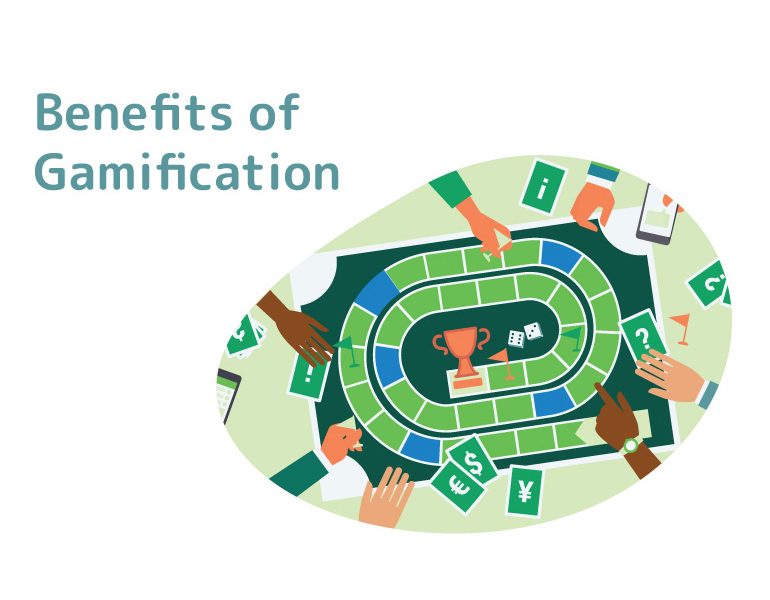Gamification brings typical gaming elements into e-learning courses: They take place in fantasy worlds, the participants click to the next level, and ranking lists and progress bars motivate them to do their best. All you need are tools to gamify and Integrating gamification into your e-learning offers many benefits. We tell you the five most important ones.
Gamification has become a buzzword and takes place today in numerous contexts – including e-learning. There are many good reasons for this: In a playful way, learning content is not only easier to remember, but elements such as rankings or collecting points or awards also increase motivation. Gamification has long since become an important part of successful e-learning. However, word of its advantages has not yet spread very far: only 4 per cent of the companies that use e-learning rely on digital game elements. Many are not aware of the benefits or lack a suitable strategy 2. However, in doing so, you are wasting a great deal of potential. Here you can find out how gamification can help your e-learning and why you should integrate it into your digital courses.
Advantage 1: make learning fun
Playing is fun – and the learning effect is incidental. However, do not confuse cause and effect: gamification does not mean that e-learning participants learn in a game, but rather that playful elements are integrated into the courses 3. Educational games, so-called serious games, on the other hand, are real games in the course of which the user experiences a learning effect. In both cases it is the playful elements that captivate the user, increase the excitement and make it fun. Even comparatively simple functions such as collecting objects such as treasures or coins during the course are fun. More complex sequences such as puzzles increase the fun of learning. Gamification puts the user in a “flow”, they become completely absorbed in the lesson, work with concentration and are completely relaxed 4 – the best conditions for effective learning.
Advantage 2: increase creativity
Last but not least, this relaxed state promotes creativity. Playing makes you creative and promotes the potential for innovation. If users solve tricky tasks within the e-learning lesson, find their way to the next level or acquire special skills in a virtual world, this has a direct impact on their creativity. And they take this effect with them to the workplace. Knowledge acquired with the help of gamification is thus applied in a more versatile way – and new ideas are created for which people sometimes think outside the box.
Advantage 3: Immediate success control
Hop or top? How successfully the user has completed the e-learning can be found out directly with the help of gamification. The duration of the lesson can also be displayed. The user has full control: He knows how much time he should plan for further training, where he stands and where the goal is. Ranking lists, status bars or medals tell him how well he has completed the course – or whether repetition is announced. The transparent direct feedback also motivates you to do as well as possible – and even more so if your own results can be seen by the other participants, as is the case with ranking lists, for example. In addition, as a further playful element, tips and hints can be integrated as to how even better performance can be achieved.

